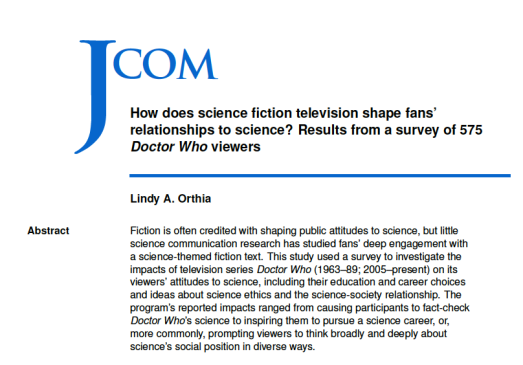Just published: my latest journal paper, in the Journal of Science Communication, reporting the first results of a survey of 575 Doctor Who fans about the show’s impact on their relationship to science.
Punchline: some viewers were inspired to pursue science careers because of Doctor Who, while for others it contributed to their ideas about science ethics, the place of science in society, and more. But it varied, a lot.
Paper here (open access): here.
Data here, if you’re interested in looking, citing or collaborating with me on further analyses: here.
Conversation article summarising the main points: here.


You must be logged in to post a comment.